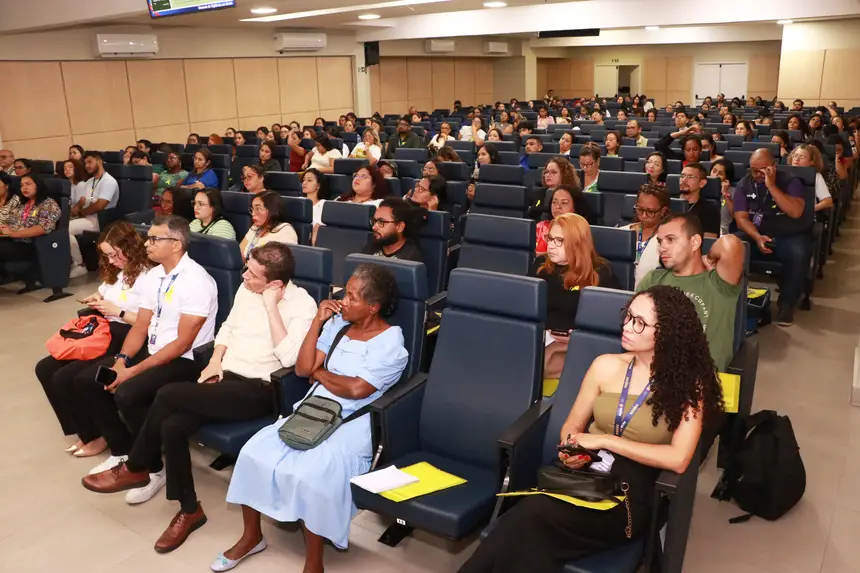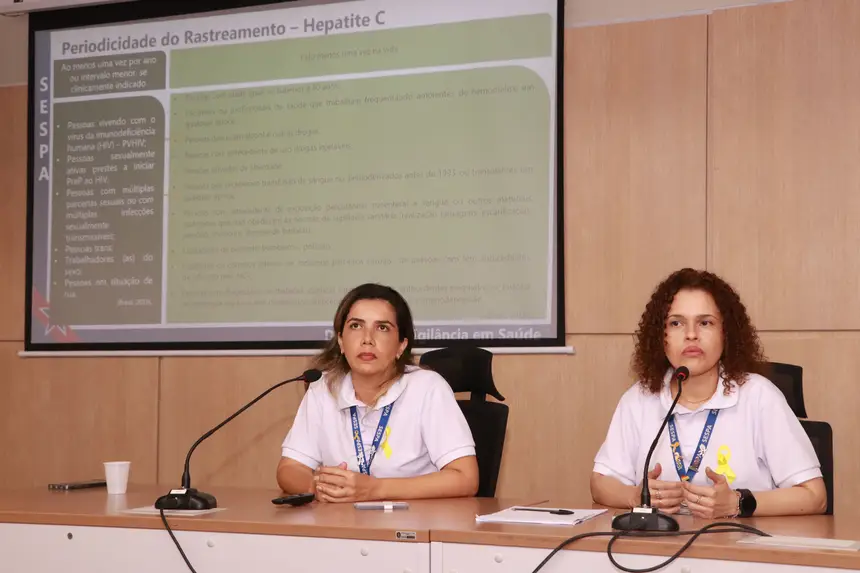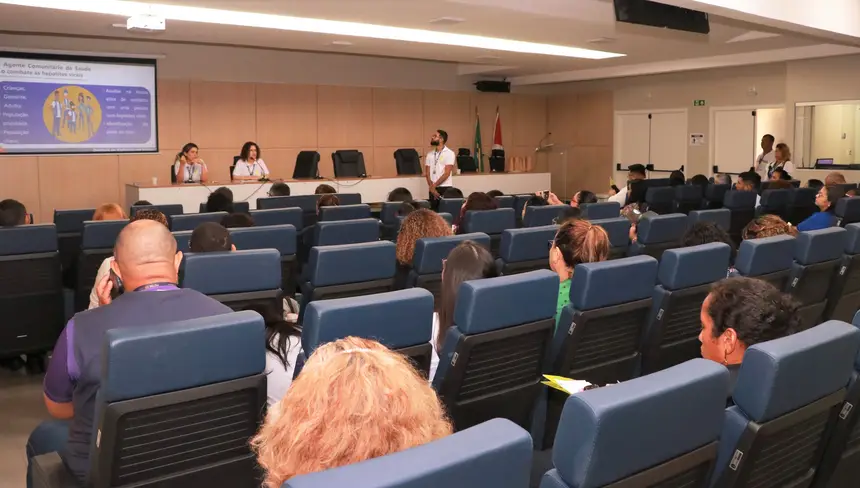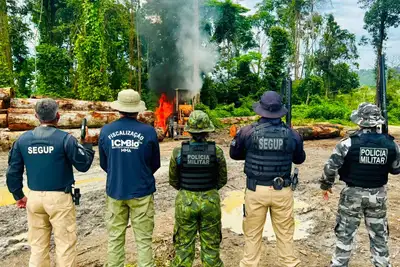Sespa trains community health agents to combat viral hepatitis
The training of professionals has a direct impact on the quality of care provided to the population, ensuring greater technical mastery in performing and interpreting rapid tests for hepatitis B and C
Health professionals from municipalities in the Metropolitan Region of Belém were trained on Thursday (10) to act as multipliers of strategies to confront viral hepatitis and to reinforce testing as a fundamental tool for early diagnosis and timely initiation of treatment.
“By reinforcing knowledge about rapid tests, we ensure faster diagnosis and expand access to care, especially in confronting viral hepatitis. This training gains even more importance with the arrival of 'Yellow July', when we intensify actions for the prevention and combat of viral hepatitis throughout the health network,” said Caroline Figueiredo, coordinator of Viral Hepatitis at Sespa.
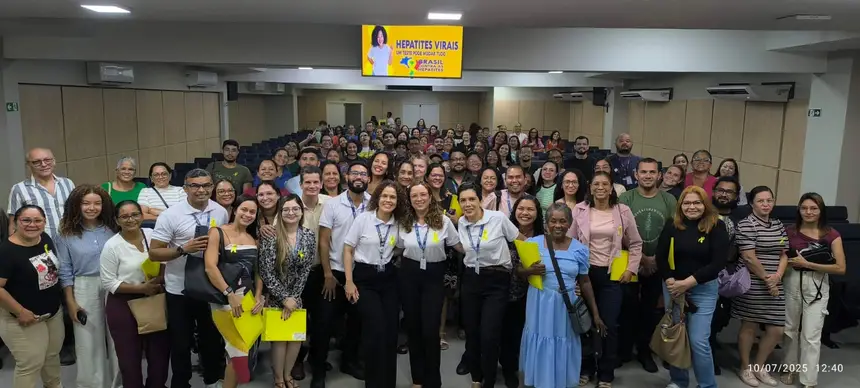
She emphasized that the training has a direct impact on the quality of care provided to the population. With technical mastery over the performance and interpretation of rapid tests for hepatitis B and C, these professionals ensure faster and more secure diagnoses in Health Units.
Held in the auditorium of Sespa in Belém, the training was the first act of Sespa's mobilization in the month of intensification of prevention and control of hepatitis, commemorating July 28, World Hepatitis Day.
Throughout the year, Sespa, through the Department of Control of Transmissible Diseases, provides rapid tests and condoms (external and internal) to the Health Departments of the 144 municipalities in Pará. The materials are directed towards the development of health and prevention actions in Regional Health Centers and municipalities.
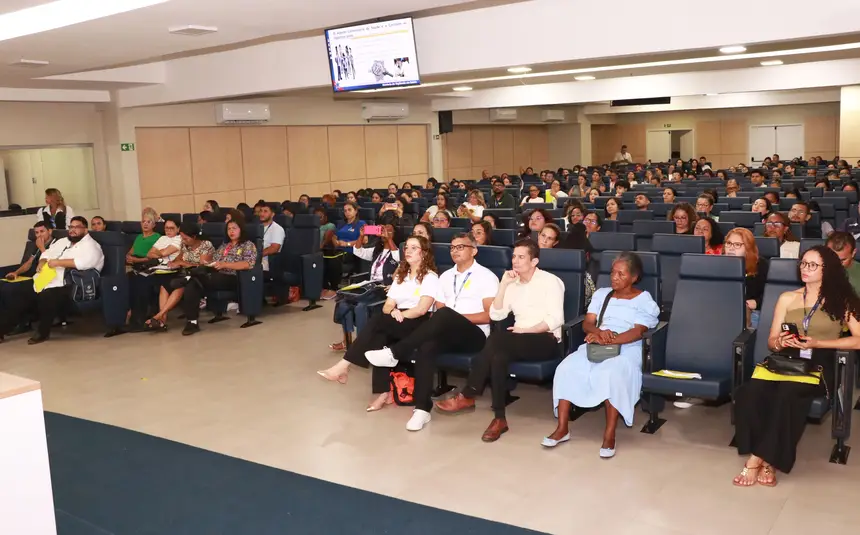
Encouragement - The “Yellow July” campaign represents a public health effort to combat the underreporting of cases and expand access to testing and early diagnosis, through the encouragement of vaccination against type B – offered free of charge by the SUS (Unified Health System) – and the expansion of assistance and treatment for the more dangerous types: B and C.
Hepatitis is an inflammation of the liver's hepatic cells and can be caused by viruses A, B, C, D, and E. Diagnosis is made through blood tests.
Infections by viruses B and C usually do not present symptoms. Due to their silent nature, they can evolve into chronic forms, as well as the development of fibrosis, liver cirrhosis, and even hepatocellular carcinoma.
Classified as a chronic disease, hepatitis “C” is a silent disease that can remain in the body for up to 20 years without manifesting. The disease can be transmitted through contaminated needles and syringes, or through unsterilized sharp objects.
Sespa recommends that municipalities intensify mobilizations offering free testing, an essential strategy for actively seeking silent hepatitis patients - those who have not manifested symptoms. Regardless of age, people who have had piercings and tattoos, as well as those who received blood transfusions before 1993 and health professionals, can seek the service.
Specialized services - In Pará, citizens who want to know if they have hepatitis should seek the nearest Basic Health Units to initiate the care flow through SUS. If treatment is needed, they will be referred to one of the 41 Specialized Care Services (SAE) for HIV/Viral Hepatitis spread throughout Pará. In more complex cases, the patient can also be referred to the Santa Casa de Misericórdia Foundation of Pará, which specializes in treating advanced liver diseases and liver transplants.
Through the CEHV, Sespa has also intensified actions against the disease throughout the State, including educational activities for prevention and health services provided in conjunction with municipalities, especially in hard-to-reach communities, such as riverside and indigenous populations.
Statistics - Due to the encouragement of early diagnosis, hepatitis cases in Pará have shown fluctuations among the most frequent types - A, B, and C - according to the latest records from the Notification of Diseases Information System (Sinan NET).
The A type disease recorded 25 cases in 2024, followed by six occurrences between January and June of this year. Confirmed cases of hepatitis B in Pará totaled 506 last year, and another 142 in the first six months of 2025. According to Sinan NET, cases of hepatitis type C in Pará totaled 360 occurrences in 2024, and 97 this year, with data updated until June 10.
Regarding deaths caused by the disease, most are caused by types B and C. In the historical series between 2020 and 2024, data from the Mortality Information System (SIM) show that 237 people died from hepatitis, with 64.28% of this total being type C.
Campaign schedule for “Yellow July”
07/17/2025 (Thursday): Testing action related to Yellow July, conducted by the Santa Casa de Misericórdia Foundation, at Parque Shopping, where rapid testing (Hepatitis B, Hepatitis C, HIV, and Syphilis) will be offered to the population, from 10 AM to 9 PM.
07/30/2025 (Wednesday): Testing action related to Yellow July, at the Santa Casa de Misericórdia Foundation, conducted by the institution itself, where rapid testing (Hepatitis B, Hepatitis C, HIV, and Syphilis) will be offered to employees, patients, companions, and the population. Hours from 8 AM to 5 PM.


